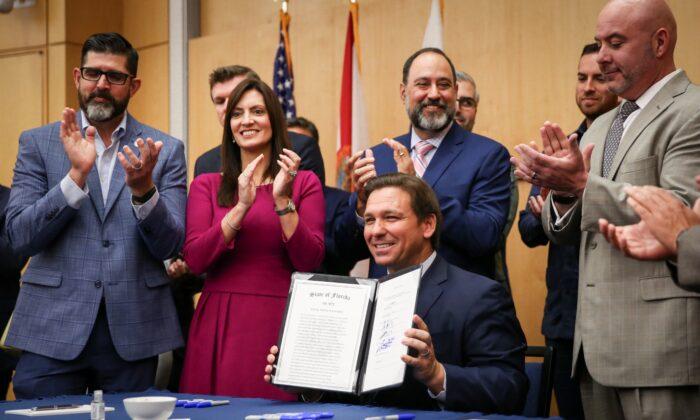Robert Strayer, deputy assistant secretary for cyber and international communications and information policy at the State Department, said the United States is encouraging European countries to think carefully about the security and economic implications of rushing forward with using Huawei’s technology.
“There is no way to fully mitigate any type of risk except the use of trusted vendors from democratic countries,” Strayer told reporters on a visit to Lisbon, Portugal.
Strayer also said it was “necessary to demystify” the notion that Huawei is more advanced in 5G. Huawei was founded in 1987 by a former People’s Liberation Army engineer, and Washington has repeatedly asked allies to not use Huawei’s technology over fears it would help China steal secrets from and spy on the West. Huawei and Beijing have both denied the accusations.
“The good news is Ericsson, Nokia, and Samsung all provide 5G technology that is on par with the one Huawei is providing today,” Strayer said. “They are leading the world in the type of technology they have.”
Strayer’s comments echo those made earlier this month by Attorney General William Barr, who said there were only two companies that can properly compete with Huawei as 5G infrastructure suppliers: Nokia and Ericsson.
Barr said the main concern was that the two suppliers don’t have enough resources or backing behind them to match Huawei’s scale. He suggested the United States use its resources to back one or both of the firms, adding that it would “make it a more formidable competitor and eliminate concerns over its staying power.”
“We and our closest allies certainly need to be actively considering this approach,” he said.
Huawei says it spent $15 billion in 2019 on research to help it achieve market leadership and has said the United States wants to frustrate its growth because no U.S. company could offer the same range of technology at a competitive price.
Strayer said Western vendors such as Ericsson and Nokia will use an open architecture with more functionality, creating opportunities for companies in the United States and Europe to provide compatible equipment.
Robert Blair, White House special representative for international telecommunications policy, said at the Munich Security Conference in Germany that the United States could potentially develop partnerships with the telecoms industry as a bid to create an alternative to Huawei.
“Great respect to Attorney General Barr, but we believe the best way forward is what Ajit Pai announced just over the last several days,” Pence said, referring to the Federal Communications Commission chairman’s efforts to free up more spectrum for 5G wireless use.





